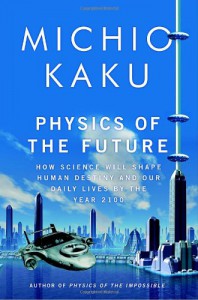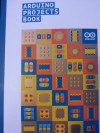Currently reading
Jennifer, Gwyneth & Me: The Pursuit of Happiness, One Celebrity at a Time
Mr. Mercedes
Arduino Projects Book
Physics of the Future: How Science Will Shape Human Destiny and Our Daily Lives by the Year 2100
 Are super powers, sentient robots, and flying cars in our future? According to Michio Kaku’s latest book, the answers to that question is probably; not any time soon; and at least floating cars almost definitely. In this book, Kaku makes predictions about what the next 100 years of science will bring and how that science will effect our daily lives. He makes these predictions based on both extensive interviews with scientists doing cutting edge research and his own experience as a researcher.
Are super powers, sentient robots, and flying cars in our future? According to Michio Kaku’s latest book, the answers to that question is probably; not any time soon; and at least floating cars almost definitely. In this book, Kaku makes predictions about what the next 100 years of science will bring and how that science will effect our daily lives. He makes these predictions based on both extensive interviews with scientists doing cutting edge research and his own experience as a researcher.Ever since I read Kaku’s Hyperspace I have been astonished and impressed by his ability to explain complex physics concepts to a general audience. In this book, he applies that ability to other fields as well. Looking at his discussion of my field, bioinformatics, I found that his descriptions were very simplified, but still accurate and contained information I’d be excited to have the general public know. Reading about fields that I’m not familiar with, I appreciated the simplification and found his discussions enjoyable and easy to follow. The constant connections between this science and our future quality of life in particular made the science interesting through relevancy. Kaku does a great job conveying his own excitement too, about not only potential applications but also the basic science.
The overall organization was very well done, with one topic leading into the next and sometimes referring to each other so that concepts began to feel familiar. Throughout the book and again at the end, Kaku also draws our attention to the fascinating ethical implications of cutting edge science. He also makes incredible predictions about where that science will go. For both of those reasons, I would highly recommend this book to scientists as well as any non-scientists who’d like to be better informed (which in my opinion, should really be everyone, since that’s who this science is going to affect!). But for scientists in particular, it’s important to always remember three things: the social implications of your work; the ethical implications of your work; and the big dreams we should all be striving for in order to make our daily lives better. This book does a great job bringing home all of those points.
This review first published on Doing Dewey.






